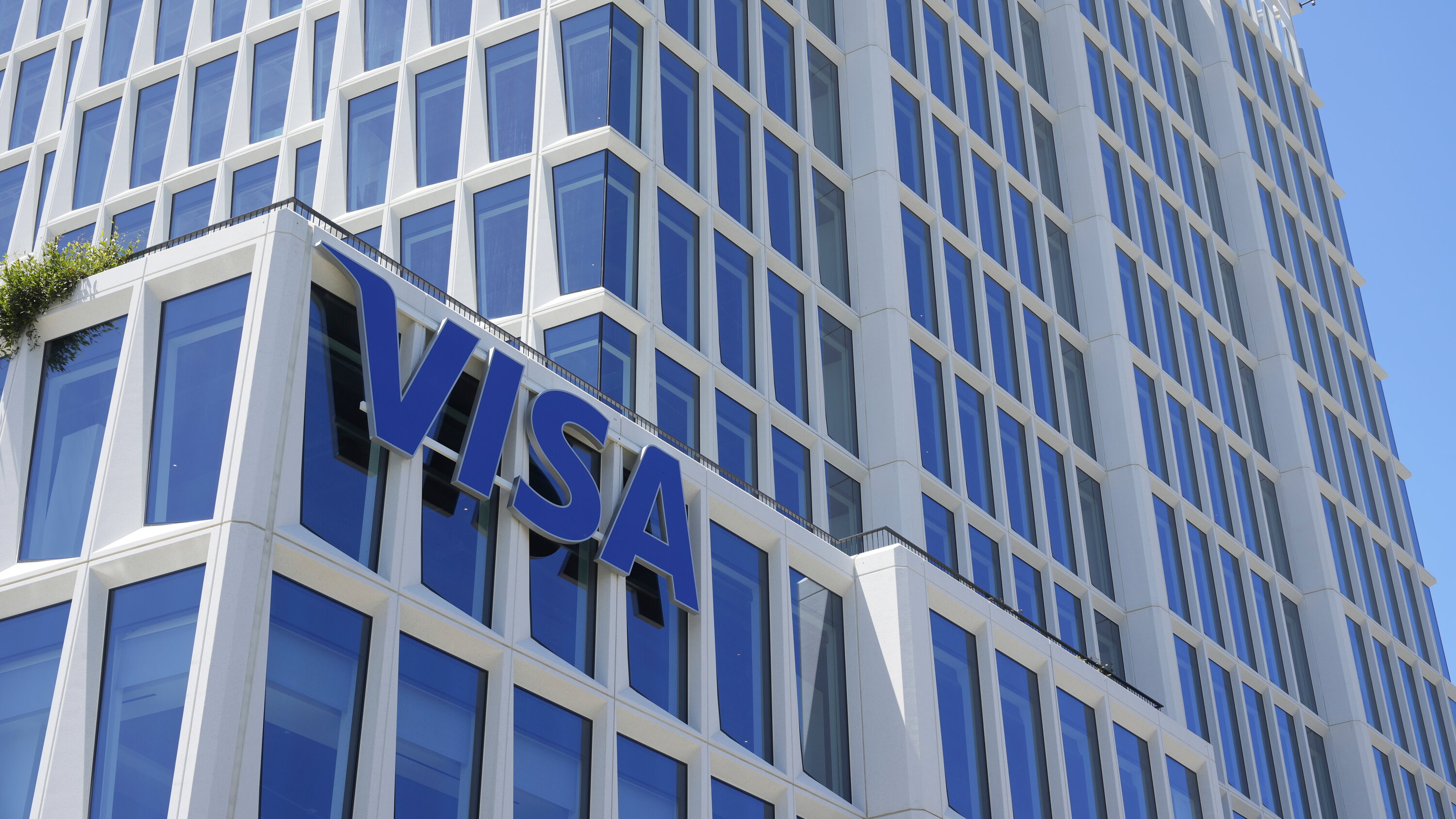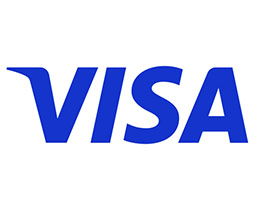Visa Inc. Boosts Digital Payment Experience for Click-and-Mortar™ Shoppers

Visa Inc. Enhances Acceptance Solutions for the Click-and-Mortar™ Shopper
Visa Inc. (NYSE:V) is making significant strides in enhancing its Acceptance Solutions to better cater to the Click-and-Mortar™ shopper, a consumer segment that seeks the convenience of digital features with the immediacy of in-store shopping. This initiative is crucial as data reveals a substantial gap between consumer expectations and the digital features provided by retailers, with a failure rate of 25% to 50% in meeting these demands. Visa's response to this challenge involves a series of strategic updates aimed at bridging this gap and fostering a more integrated shopping experience across all channels.
On April 17, Visa introduced key enhancements to its Visa Acceptance Platform, Authorize.net, and Tap to Phone technology. These updates are designed to offer merchants, regardless of their size, access to a wider range of capabilities that facilitate easier integration with various providers, thereby enhancing the overall shopping experience. The expansion of the ecosystem to include 450 payment service providers, 450,000 active merchants, and 100 independent software vendors across 160 countries underscores Visa's commitment to creating a more inclusive and accessible digital payment landscape.
A standout feature of these enhancements is the introduction of Developer Assist, an AI tool aimed at simplifying the development of payment flows, addressing testing queries, and suggesting code. This tool is indicative of Visa's efforts to streamline access to top-tier services and integrate them seamlessly on a large scale. Additionally, the Tap to Phone functionality, now live in over 120 countries with 6.7 million terminals, has processed $8.5 billion in payments volume over the past 12 months. This innovation transforms smartphones into payment acceptance devices without the need for additional hardware, marking a significant advancement in payment technology, especially in regions with limited traditional payment infrastructure.
Moreover, Visa's revamp of its small to medium-sized business platform through Authorize.net, with its improved user interface, new dashboards, and smart search functionalities, aims to better align data and improve workflows for merchants and ecosystem partners. These enhancements are part of Visa's broader strategy to meet the evolving demands of consumers and merchants alike, ensuring a seamless and integrated payment experience across all shopping channels.
Visa's efforts are not only focused on enhancing digital payment solutions but also on driving financial growth. With an Earnings ESP of +0.59% and an expected 12.7% earnings growth rate for the year ending in September 2024, Visa is poised for significant financial performance. The company's strategic acquisitions, alliances, and sustained investments in technology, coupled with the ongoing shift towards digital payments, are expected to propel long-term growth and boost revenues. As Visa continues to outperform earnings expectations and anticipates net revenues to climb into the low double digits for the fiscal year 2024, it remains a key player in the fintech space, well-positioned to capitalize on the increasing adoption of digital payment solutions.
| Symbol | Price | %chg |
|---|---|---|
| V.BA | 27300 | 0.66 |
| MA.BA | 24260 | 0.21 |
| AXP.BA | 30860 | 0.65 |
| BFIN.JK | 750 | -0.67 |

Visa Beats Q3 Estimates But Holds Guidance Steady Amid Tariff Concerns
Visa (NYSE:V) reported better-than-expected third-quarter results but kept its full-year outlook unchanged, despite global economic uncertainty and ongoing trade tensions.
The company earned $2.98 per share on $10.2 billion in revenue for the quarter ended June 30, beating Wall Street expectations of $2.84 and $9.84 billion, respectively.
Net revenue rose 14% year-over-year, supported by increased payments volume and cross-border activity. Payments volume grew 8%, while cross-border transactions climbed 12% and total processed transactions increased 10%.
Visa said U.S. consumer spending remained strong across both discretionary and non-discretionary categories, despite the broader macroeconomic challenges stemming from tariffs and inflationary pressures.

Visa Inc. (NYSE: V) Continues to Dominate the Payments Industry
- Matthew Coad from Truist Financial sets a bullish price target of $400 for Visa Inc. (NYSE: V), indicating a potential increase of approximately 10.15%.
- Visa's fiscal second-quarter results exceeded Wall Street expectations, with a significant announcement of a $30 billion share buyback plan.
- The stock reached an all-time high above $369, marking a 15.6% increase since the start of the year and showcasing Visa's robust growth in the payments industry.
Visa Inc. (NYSE: V) is a global leader in the payments processing industry. Founded in 1958, Visa went public in 2008, raising $17.9 billion in what was then the largest public offering. The company has maintained a dominant position in the payments industry, even as it faces competition from other major players like Mastercard and American Express.
On June 2, 2025, Matthew Coad from Truist Financial set a bullish price target of $400 for Visa. At the time, Visa's stock was trading at $363.13, suggesting a potential increase of approximately 10.15%. This optimistic outlook aligns with Visa's recent developments, including a surge in the adoption of its "Tap to Phone" technology and a new scam disruption initiative.
Visa's fiscal second-quarter results exceeded Wall Street expectations, reflecting strong consumer spending. The company also announced a $30 billion share buyback plan, which has helped the stock remain resilient amid economic uncertainties. This buyback plan is a strategy where a company purchases its own shares from the marketplace, reducing the number of outstanding shares and often boosting the stock price.
Visa's stock recently reached an all-time high above $369, marking a 15.6% increase since the start of the year. Currently, Visa's stock is trading at $363.03, with a slight decrease of 0.59% today. The stock has seen a low of $359.96 and a high of $364.05 in today's trading. Visa's market capitalization stands at approximately $704 billion, reflecting its significant presence in the global market.

Truist Launches Coverage on Visa With $400 Price Target, Citing Defensive Strength
Truist Securities initiated coverage on Visa (NYSE:V) with a Buy rating and a $400 price target, pointing to the payment giant’s resilient earnings profile and appeal as a defensive investment, even during periods of economic uncertainty.
Analysts highlighted Visa’s ability to deliver mid-to-high single-digit earnings growth even in a downturn, supported by its diverse revenue mix, including stable value-added services and brand fees tied to essential consumer spending. Additionally, the firm noted Visa's flexibility to manage costs—such as by scaling back marketing—and its robust buyback activity as further buffers during economic slowdowns.
While Truist sees a potential drag from softer cross-border spending, which led to slightly below-consensus forecasts, they view the current valuation as compelling. With investors seeking safety in uncertain times, Visa’s profile could support a higher relative multiple. The $400 price target reflects a 30x multiple on 2026 EPS, translating to a PEG ratio of approximately 2.3x based on an expected 13% earnings growth rate in 2027.

Visa Tops Q2 Estimates and Unveils $30B Buyback
Visa (NYSE:V) delivered better-than-expected fiscal second-quarter results, powered by robust gains in payments and cross-border volumes, and announced a massive new $30 billion share repurchase program.
The payments giant reported earnings of $2.76 per share, surpassing analyst expectations of $2.68. Revenue rose 9% year-over-year to $9.6 billion, slightly ahead of the $9.55 billion consensus. The company benefited from strong underlying trends, including a 13% jump in cross-border volume and a 9% increase in processed transactions, underscoring continued consumer and business activity across markets.
In a show of confidence, Visa’s board authorized a new $30 billion buyback of class A common stock, adding to its already aggressive capital return program.

Visa Tops Q2 Estimates and Unveils $30B Buyback
Visa (NYSE:V) delivered better-than-expected fiscal second-quarter results, powered by robust gains in payments and cross-border volumes, and announced a massive new $30 billion share repurchase program.
The payments giant reported earnings of $2.76 per share, surpassing analyst expectations of $2.68. Revenue rose 9% year-over-year to $9.6 billion, slightly ahead of the $9.55 billion consensus. The company benefited from strong underlying trends, including a 13% jump in cross-border volume and a 9% increase in processed transactions, underscoring continued consumer and business activity across markets.
In a show of confidence, Visa’s board authorized a new $30 billion buyback of class A common stock, adding to its already aggressive capital return program.

TD Cowen Trims Visa Price Target Amid Murkier Consumer Outlook
TD Cowen lowered its price target on Visa (NYSE:V) to $370 from $382 while reaffirming a Buy rating, noting resilient payment volumes but growing uncertainty in the consumer environment.
The firm anticipates Visa’s March quarter will show steady performance, potentially in line or slightly above expectations. However, macro signals suggest the back half of the year may bring slower growth, prompting the analyst to cut revenue and earnings estimates for fiscal 2025 and 2026. Visa’s more favorable exposure to debit over credit and stronger U.S. market presence are seen as near-term advantages compared to Mastercard.
The firm believes Visa remains better positioned to defend margins, with a more agile cost-cutting approach if macro conditions worsen. Despite the revised outlook, Visa’s diversified business and ability to navigate economic headwinds continue to support the bullish long-term view.

TD Cowen Trims Visa Price Target Amid Murkier Consumer Outlook
TD Cowen lowered its price target on Visa (NYSE:V) to $370 from $382 while reaffirming a Buy rating, noting resilient payment volumes but growing uncertainty in the consumer environment.
The firm anticipates Visa’s March quarter will show steady performance, potentially in line or slightly above expectations. However, macro signals suggest the back half of the year may bring slower growth, prompting the analyst to cut revenue and earnings estimates for fiscal 2025 and 2026. Visa’s more favorable exposure to debit over credit and stronger U.S. market presence are seen as near-term advantages compared to Mastercard.
The firm believes Visa remains better positioned to defend margins, with a more agile cost-cutting approach if macro conditions worsen. Despite the revised outlook, Visa’s diversified business and ability to navigate economic headwinds continue to support the bullish long-term view.







